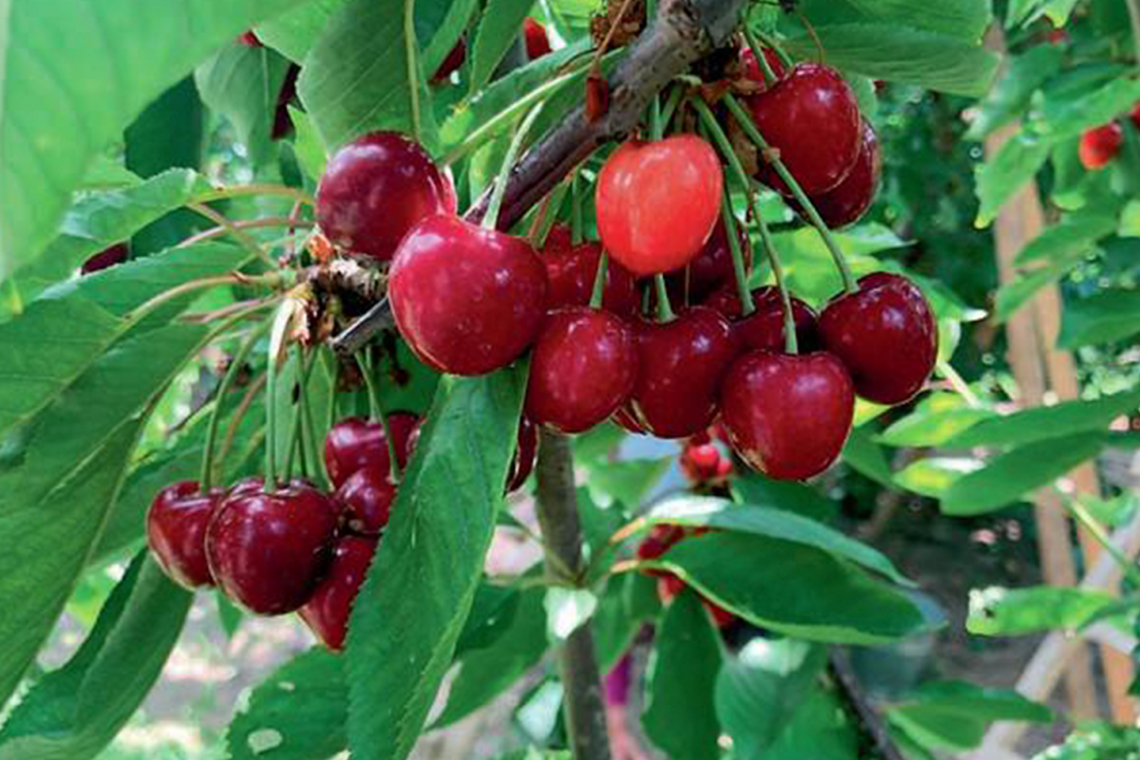The past winter could hardly have been better for Turkish cherry growing – with lots of precipitation and «nice and cold», as Cagla Celikler from KÖLLA Munich emphasised. The spring, however, had been far too cold in parts. «It didn’t really harm the cherries. The trees like the cold in winter and can then rest,» emphasised Celikler, who is responsible for purchasing and sales at KÖLLA Munich. In an interview with Fruchthandel Magazin, he also reported on what could particularly affect production and why the use of sustainable packaging is not so easy.
The quality outlook is promising. «It looks good for June. Of course, that could change quickly if it rains all the time again,» Celikler says. Turkey has large growing areas stretching from the west to the east of the country. In case of need, we can therefore access different regions. So far, the corona pandemic has not significantly harmed production with Turkish cherries, he said. «Fortunately, our packing stations have not had any problems and have always been able to work continuously.»
What would be most challenging in 2022 is the impact of the Islamic Feast of Sacrifice, which is celebrated from 9 to 13 July. The season will still be in full swing then. «That is a time for us to be extra cautious. There is no longer harvesting every day and the production lines in the country are mostly at a standstill for a short time Then higher rejects are to be expected. This year, production could stall a bit,» Celikler suspects. At the time of the interview – several days before the start of the cherry season in Turkey – he did not want to comment on specific price developments. «In 2021, the Turkish cherry was very expensive in the first week, so it was difficult to get programmes at the beginning. Spanish cherries were much cheaper. I expect that most of the prices will be given for week 23. If prices are much lower in countries like Spain or Greece, for example, that will automatically affect the price of Turkish cherries.»
Smaller calibres in demand in Eastern Europe
Both Western and Eastern Europe are important sales markets for Turkey. Besides Asia, African countries are becoming increasingly important. Celikler comments: «Germany, as the economically strongest country in Europe, is also one of the main consumer countries in the Turkish cherry sector.» Smaller calibres are exported to Eastern European countries. Countries in the Far East are also supplied with Turkish fruit. «Of course, the question is to what extent cold chains can be maintained. As far as maritime transport is concerned, you have to have courage and exceptional quality. Because in this case, the goods are on their way up to one month.»
KÖLLA also regularly works with its producers on sustainable packaging solutions. «We have been observing the move away from plastic packaging for years. The issue of food waste is also important to us. We would like to do more often without top-seal solutions, so that the entire contents don’t have to be thrown away straight away in the case of individual juicy fruits. But the market demands it,» Celikler explained. Among other things, the attempt to offer packaging made of grass paper met with little approval. «The material was more expensive compared to the Topseal solutions. Unfortunately, this packaging was not accepted by the customers, because no one was willing to bear these additional costs. In the end it is the customer who decides. But we will continue to make suggestions in this regard. Because that is an important part of our work.
Daniel Schmidt, Fruchthandel Magazin

